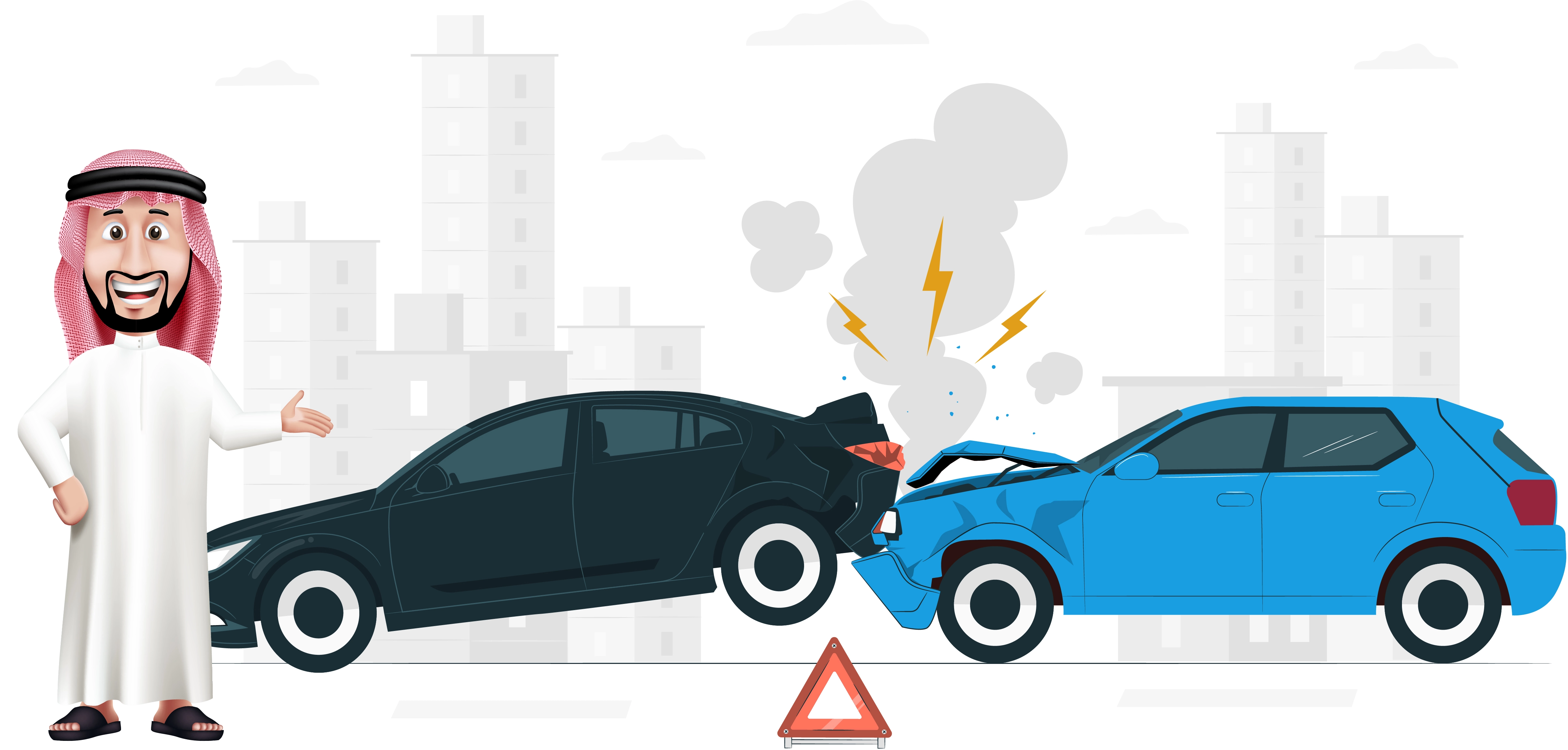What to Do If You're in a Car Accident? A Step-by-Step Guide
May 5, 2023 | Motor Insurance
Blog | What to Do If You're in a Car Accident? A Step-by-Step Guide

Car accidents are among the most terrifying and unexpected events that someone can have. Did you know that yearly, over 38,000 people die in vehicle accidents in the United States? That refers to 100 deaths every day.
You may think I'll never get into an accident, so why bother? But accidents can happen to anybody, even the most seasoned drivers. When they do occur, they can be overpowering, challenging, and even frightening. However, knowing what to do in an accident may make all the difference in guaranteeing your safety and preserving your money.
We will give you step-by-step instructions in this blog to assist you in managing the issue calmly and how to avail yourself of your car insurance services. So, whether you're a rookie or an experienced driver, keep reading to discover how to manage a car accident like an expert. We guarantee you'll feel more confident, knowledgeable, and assertive by the conclusion of this post. Let's get this party started!
Step 1: Stay Calm and Access the Situation
The first and most important step to deal with a car accident is to remain calm and analyze the situation. It may appear easier said than done, especially if you are terrified, furious, or astonished. However, being relaxed is critical since it can assist in preventing more injury and ensure that you make the proper judgments.
Here are some of the reasons why remaining cool is critical in this situation:
• It enables you to think clearly and make sound judgments.
• It can save you from making blunders that will exacerbate the issue.
• It helps you avoid escalating or arguing with other drivers or spectators.
• It can help you manage your emotions and avoid feeling overwhelmed or traumatized by the encounter.
Step 2: Call for Help
After reviewing the problem, the next step is to seek assistance. Even if the accident appears minor, this is critical. You never know when someone will be hurt; even minor incidents can inflict hidden damage to your car or other property.
Speaking effectively with the operator when you contact for assistance is critical. Here's what you should provide:
• Your location: Provide your accurate site, including the street name, nearest intersection, or landmark.
• Nature of the emergency: Explain that you've been in a car accident and whether anyone is injured.
• Your contact information: Provide your name and phone number to the operator.
It's also good to take notes of the operator's name and the reference number or case number. By calling for help, you'll take a critical step in handling the accident and protecting yourself and others.
Step 3: Document the Accident
After ensuring the safety of all involved parties and calling for help if necessary, the next step is to document the accident. It is crucial for insurance claims and legal purposes.
Here are some reasons why documenting the accident is essential:
• It can help you file a claim with your insurance company and get the compensation you're entitled to.
• It can help you prove liability if the other party disputes it.
• It can help you prove liability if the other party disputes it.
Here are some tips on how to document the accident:
• Take photos of the damage and injuries Use your smartphone or camera to take pictures of the accident scene from different angles, the damage to your vehicle and the other party's vehicle, any injuries sustained, and any debris or skid marks on the road.
• Collect witness statements If there were any witnesses to the accident, ask them to provide a statement. Be sure to collect their names, phone numbers, and addresses. Witness statements can help prove liability.
• Collect witness statements: Write down important information about the accident, such as the location, time, weather conditions, and traffic signs or signals. Also note the other driver's name, contact information, license plate number, and insurance information.
After ensuring the safety of all involved parties and calling for help if necessary, the next step is to document the accident. It is crucial for insurance claims and legal purposes.
Step 4: Notify Your Insurance Company
You must notify your insurance company immediately after an accident to avail your car insurance services.
Here's why:
• Your insurance company can guide how to proceed.
• Your insurer may need to process your claim and cover any damages or injuries sustained.
• Failing to notify your insurance company on time may result in your claim being denied.
When you contact your insurance company, be prepared to provide the following information:
• Your policy number and contact information
• The date, time, and location of the accident
• The other driver's name, contact information, and insurance details
• The police report number (if applicable)
• A brief description of the accident and the damage sustained
Here are some tips on how to communicate effectively with your insurance company:
• Stay calm and focused: Remember to take a deep breath and stay calm when speaking with your insurer. Explain the situation clearly.
• Be honest and accurate: Provide accurate information about the accident, including any injuries sustained or damage to your vehicle.
• Ask questions: Ask your insurer for clarification if you're unsure about anything. It's better to ask questions than to make assumptions.
• Follow up: Keep in touch with your insurer to ensure your claim is processed on time. Don't hesitate to follow up if you have been waiting to hear something for a few days.
Remember, choose the best companies for car insurance to have the best services in case of accidents. By notifying them as soon as possible and providing accurate information, you can ensure that your claim has been processed efficiently.